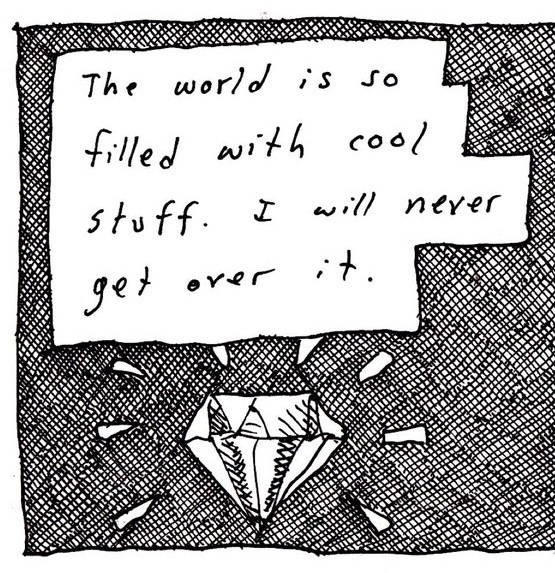A matter of internet speculation
In this week's edition: Internet boogeymen, Enya, Wishbone, competitive porridge, satanic panics and Facebook politics
Links is a free weekly newsletter with a simple premise: I read tons of stuff on the internet, and this is the best of it. You can hit reply to send your own links. You can also follow me on Twitter. And if you want to support the newsletter, please tell your friends. Or enemies, really! I take all comers.
There’s a telling moment in Tuesday’s episode of The Daily — the New York Times’ podcast usually hosted by Michael Barbaro — when fill-in host Megan Twohey and reporter Jack Healy strain to understand the Oregonians defying wildfire evacuation orders. Healy had spent some time with a group of these people, and he explains that they (improbably) hope to save their homes from the blaze, should it veer in their direction. Then he adds: They’re also concerned about looters ransacking their empty houses if they leave. There’s a beat before Twohey asks if that’s a real problem.
And Healy says, essentially: Well, it has happened — but it’s almost entirely a matter of internet speculation.
I’ve been thinking about this exchange a lot this week, in a whole range of different contexts, because it’s such a tidy, sympathetic metaphor for so many of our current cultural conflagrations. The Oregonians’ fear is rational; their lives have gone up in literal flames, and despite whatever hoses or extinguishers they’ve collected, there’s nothing they can truly do about the fires or the vaster and more terrifying forces of climate change. But looters — looters. They’re concrete, unambiguous, unequivocally evil; you could fight off a looter, if one existed. That they don’t exist is besides the point. We invent boogeymen to soothe ourselves.
And people need a lot of soothing, it would seem, because these boogeyman are everywhere. Elsewhere in Oregon, right-wing Facebook groups have spread rumors of antifascist arsonists fanning the flames. In D.C., Michael Caputo, now on leave from his job as spokesperson at HHS, filmed a Facebook rant last week in which he accused a shady cabal of scientists in his own department of deliberately prolonging the pandemic for political reasons.
In Wired, the data scientist Sara-Jayne Terp undertakes a nine-month cross-country road trip to better understand the offline audience for online misinformation; she concludes that Americans have begun waging “phantom battles against illusory enemies,” in part because of prevalent beliefs that America or its “way of life” (endless scare quotes here!) are under siege.
In particular, though, I keep thinking about these two great explainers from Mother Jones and Rolling Stone (see more under link #1, below) that lay out the reasons why grotesque pedophilia conspiracies repeatedly crop up in times of social upheaval. There’s a lot to unpack there, but basically it also boils down to the same idea: When people feel destabilized by change — when their world appears to be going up in flames around them — they need a concrete villain to battle.
And if there is none, they’ll invent one: looters, arsonists, child traffickers, mad scientists. A whole cast of Internet boogeymen.
If you read anything this weekend
This eye-opening exploration of why right-wing conspiracies so often include child trafficking and pedophilia. It’s not just QAnon — see Pizzagate, the “satanic panic” and the new uproar about a French coming-of-age drama. Spoiler alert: The concern has far less to do with actual children than the anxieties of the people fretting about them. [Mother Jones]
This bile-rising essay by model and actress Emily Ratajkowski, which you have surely already seen all over Twitter. The only sliver of light in this incredible shitstorm of misogyny and shamelessness is that Ratajkowski appears to be getting the last word on it. [The Cut]
This deep dive into the pro-life movement’s radical brand makeover. Catholic theology, holistic “wellness” and distrust of the medical establishment have morphed the shriekers outside Planned Parenthood clinics into something much trickier and more polished. [Jezebel]
This illuminating synthesis of the many, many ways that Facebook has publicly and privately kowtowed to Trump. I don’t think that much of this is revelatory, to people who have paid attention?, but it’s quite something to see it all laid out at once. [Businessweek]
This delightful oral history of very, very good pup Wishbone. In this time of darkness and confusion, I think I speak for everyone when I say we could all use more anthropomorphic literary dogs. Can’t believe this show only ran for two seasons. [Texas Monthly]
This overdue appreciation of my girl Enya and her surprising musical legacy. I have unironically loved Enya since I was a kid — and was so! damn! gleeful! to read the long, diverse list of popular artists who credit her as an inspiration. Got Watermark on repeat this week. [Pitchfork]
And now for something completely different

If you enjoy Links you will likely more-enjoy Edith Zimmerman’s Drawing Links, which has become, like … a recurring island of respite in my inbox. Edith (you know her from The Hairpin, among other places) illustrates short comics on all sorts of subjects. But I especially loved this one about the serendipitous inspiration of a rando runner on Strava.
Postscripts
Competitive porridge-making. “Conspiracy capitalism.” The immediately recognizable gentrification font. How climate migration will reshape the U.S. and why absolutely everything is sold out.
The language of Fox News. The rise of ghost kitchens. What viral Tik-Toks do — and don’t — tell us about The Kids™. I am so pumped for the new, “bitchy” Sufjan, you guys. Likewise: love these Dads who didn’t want pets.
Sharing is caring

I would discourage most readers from using this newsletter as a source for actual news. I feel like they’d leave with the (true, but limited) dual impressions that (a) the world is mostly going to hell and (b) that all dogs are good. But Greg is an educational technologist (I literally cannot imagine a more stressful job right now??) so one assumes he at least can handle it. THANK YOU to Greg & everyone else who shares this newsletter. Your referrals are the main way it finds new readers!!
— Caitlin




